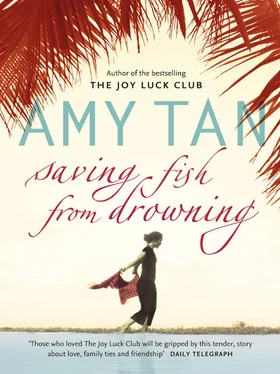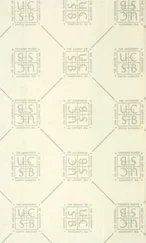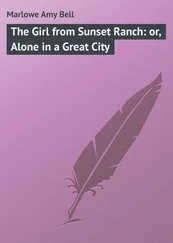Wendy was the first to admit that the roadside eatery that afternoon had been “kind of a mistake.” If only she knew how huge. Nonetheless, I was greatly pleased to hear this admission come from her lips. A chastened group was a more honest one. And they raved about the fare I had chosen, or did until they encountered what the cook called “surprises” he had thrown in for free.
One was a roasted root with a crunchiness that the chef claimed the tourists would find as tasty and addictive as their American chips and English crisps. The roasted roots, however, had the unappetizing appearance of large fried larvae, also a regional favorite. But once the travelers were persuaded to try one, they devoured the snappy little appetizer with gusto, as they did a later dish, presented as the second surprise, which also resembled larva, and was. Then came another crunchy appetizer called “dragonfly,” which they took to be poetic license and was not. “This one has more of a buttery flavor,” Bennie said.
The third surprise was a spicy bean curd.
“I’ve eaten ma-po tofu all my life,” Marlena said. “But this one tastes strange. I’m not quite sure I like it.”
“It’s almost lemony, and with a strong bite,” Harry said.
“I don’t care for it.” Vera pushed her portion off to the side.
“It’s not bad,” Dwight said. “Grows on you, actually.” He took seconds.
What they tasted was not the chili substitute often found in American-made Sichuan tofu. The Lijiang version was made of the berrylike pods of the prickly ash. The zing in the mouth derives from the numbing quality that the berries have on the mucosa. And the particular variety of the genus Zanthoxylum that my friends were eating was not only from Sichuan but also of the Himalayan region, where people eat it like jelly beans. It tends to have more heat factor, ma- ness, and also to cause an almost anesthesia-like paralysis of the gut, especially in those who are delicately inclined. That would be Dwight, I might add.
THE NEXT DAY, when the group assembled for breakfast, Bennie had an announcement: “By nothing short of a miracle, Miss Rong, as a final courtesy, was able to book flights for us today so that we can leave as soon as possible.” In a few hours, they would leave for Lijiang airport and fly to Mangshi, which was only a couple of hours’ drive from the Burma border. As Bennie knew, palm-greasing helps to speed things along. The night before, after the group had voted to leave Lijiang, he rang up Miss Rong and said he would give her two hundred U.S. dollars of his own money to use as she saw fit, no questions asked, if only she could help him out of this predicament. She in turn gave away a portion of that to the various expediters connected with hotels, airlines, and the office of tourism, who, in the age-old custom of guanxi- giving, showed their appreciation by granting almost a full refund on the much-shortened visit to Lijiang.
At ten in the morning, they boarded the flight, and as they ascended, so did their moods. They had escaped their troubles with nothing more than a few mosquito bites and the pinch of several thousand kwai.
Their new guide, Miss Kong, was there to meet them at the gate in Mangshi. She was holding a sign: “Welcome Bibi Chen Group.” I was delighted to see this, but it certainly took my friends aback. Bennie quickly introduced himself as the tour leader taking my place.
“Oh, Miss Bibi is not able to come?” Miss Kong inquired.
“Not able,” Bennie confirmed, and hoped the others had not heard this exchange. If the tourism office here was unaware that the original organizer of this trip was dead, what else had they neglected to note?
The guide faced the group: “My name is Kong Xiang-lu. You may call me Xiao Kong or Miss Kong,” she said. “Or if you prefer, my American nickname is Lulu. Again, nickname is Lulu. Can you say this?” She paused to hear the correct answer.
“Lulu,” everyone mumbled.
“Sorry?” Lulu cupped her ear.
“Lulu!” they filled in with more enthusiasm.
“Very good. When you need something, you just shout Lulu.” She said it again, in a singing voice: “Luuu-lu!”
Privately, as they walked toward the bus, Lulu told Bennie, “I saw report of your difficulties at Stone Bell Temple.”
Bennie became flustered. “We didn’t mean—that is, we had no idea …”
She held up her hand like the Buddha asking for meditative silence. “No idea, no worries.” Bennie noted that everyone in China who spoke any English was saying that phrase, “No worries.” Some Aussies must have come through, all of them solicitously murmuring “No worries” at every turn. Lost your luggage? No worries! Your room’s crawling with fleas? No worries!
Bennie wanted to believe that Lulu’s declaration of “No worries” was genuine, that she had solved all their problems. He had been hoping for a sign that their luck had turned, and by the minute he felt she was presenting it. She offered a clear plan, knew all the routines, and could speak the same dialect as the driver.
I, too, thought she was an ideal guide. She had an aura of assurance matched by competence. This is the best combination, much better than nervousness and incompetence, as in the last guide. The worst, I think, is complete confidence matched by complete incompetence. I have experienced it all too often, not just in tour guides, but in marketing consultants and art experts at auction houses. And you find it in plenty of world leaders. Yes, and they all lead you to the same place, trouble.
For Bennie, Lulu’s no-worries and no-nonsense demeanor was as good as two prescription sedatives. Suddenly, devising a new schedule did not seem overwhelming. Her English was understandable, and that alone put her legions ahead of Miss Rong. Poor Miss Rong. He still felt guilty about that. Oh, well. In addition to being fluent in Mandarin, Lulu claimed to speak Jingpo, Dai, Cantonese, Shanghainese, Japanese, and Burmese. “Meine Deutsche, ach,” she went on in a self-deprecating manner full of good humor and mistakes, “ist nicht sehr gute.” Her hair was cut into a short flip. Her glasses were modern, small cat’s-eye frames with a hip retro fifties look. She wore a tan corduroy jacket, drab olive slacks, and a black turtleneck. She certainly appeared to be competent. She could have been a tour guide in Maine or Munich.
“The Chinese border town has very excellent hotel,” Lulu went on. “That is where you stay tonight, in Ruili. But the town is quite small, just stopping-off place where tourists are eager to leave, so not too much for sightseeing. My suggestion is this, so listen: We stop at a Jingpo village along the way.” Bennie nodded dumbly. “Later, we do a bicycle trip to a market, where selling the foods is very exciting to tourist who is seeing the first time.…” As Lulu ticked off various spur-of-the-moment activities, Bennie felt waves of relief. Lulu was doing an admirable job, God love her.
Lulu stood at the front of the bus, counting heads before she gave the takeoff signal to the bus driver, a man named Xiao Li. “You can call him Mr. Li,” Lulu said. Lesser employees, Bennie noted, were accorded more respectful status. As the bus roared into gear, Lulu grabbed a microphone. “Good afternoon, good morning, ladies, gentlemen,” her voice came out, loud and tinny. “You are awake? Eyes are open? Ready to learn more about Yunnan Province here in a beautiful southwest part of China? Okay?” She smiled, then beckoned her charges with a toss of her hand to answer.
“Okay,” a few said.
Lulu shook her head ruefully. “Okay?” Lulu leaned forward, her hand cupping her ear, a now familiar cue.
“Okay!” the travelers shouted back.
Читать дальше












